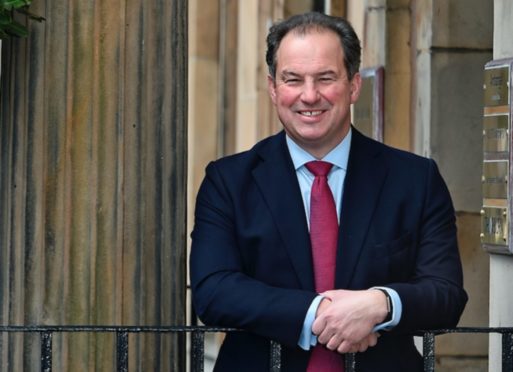Businesses in Scotland have reported strong economic growth over the summer months but concerns are still mounting over rising cost pressures, inflation and taxation, a survey has found.
Reporting “resilience” in the Scottish economy, the latest Scottish Chambers of Commerce (SCC) Quarterly Economic Indicator Survey said firms are “shaking off the cobwebs” thanks to the benefits of the easing of Covid-19 restrictions.
A bounce back was enjoyed during the summer months which saw most of the growth generated from the construction, financial & business services (FBS) and manufacturing sectors according to the findings.
Although retail and tourism also saw growth from Q2, it was described as “subdued” in comparison to other sectors.
Support & clear plan needed for businesses
However, the report highlighted all sectors have reported significantly increased concerns over inflation and taxation with levels of concern over inflation now reaching record highs.
Surges in the cost of raw materials and shipping, global supply chain disruption and the UK Government’s decision to raise National Insurance contributions, were all cited by firms as key factors.
Tim Allan, SCC president, has warned it is no time for “timidity” with more needing to be done by the Scottish and UK Governments to support businesses with a clear plan.
He said: “For sectors which have been most heavily reliant on the furlough scheme: aviation, retail, tourism and hospitality, the potential damage of restrictions returning over the next quarter cannot be underestimated.
“While welcome progress is finally being made in opening up international travel,
going backwards domestically could lead to a catastrophic loss of jobs in these vital sectors of the economy.
“There is no time for timidity when it comes to action to support businesses and that’s why the Scottish and UK Government must urgently back business with a clear economic plan and budgets focused on business recovery.
“It is business which is driving the rapid return to economic growth and Governments must stop adding upfront business costs and instead focus on supercharging recovery by creating the right environment for businesses to trade, invest and grow.”
There is no time for timidity when it comes to action to support businesses and that’s why the Scottish and UK Government must urgently back business with a clear economic plan and budgets focused on business recovery.”
Tim Allan, SCC president
Concerns over exports
Reported rises in business confidence are now being undermined by energy concerns with gas supply shortfalls and an over-reliance on volatile imports putting additional cost pressures on businesses the report says.
Export remain weak with for the second successive quarter, with all export order and sales trends reported in the survey continuing to fall.
The slow pace of reopening up international travel, continuing Covid-19 disruption and adjustment to post Brexit trade are all contributing factors cited by businesses, it adds.
Businesses need confidence and certainty
Concerns were also highlighted about a skills shortage having a knock-on effect for recruitment.
The construction, manufacturing and tourism sectors have all reported significantly increased recruitment difficulties due to a lack of skilled labour in the UK workforce and lack of access to previously available EU labour.
Added to rising cost burdens, this will impact on business capacity and in the long-term could force firms to curb investment, the report says.
Mr Allan said: “The survey results indicate that confidence and domestic sales are generally strong across all sectors surveyed, with expectations in line with improving economic forecasts that the Scottish economy should return to pre-pandemic levels in the spring of 2022.
“After what has been an extremely challenging past 18 months for Scottish businesses, many are now looking and working towards building back to a new normality.
“However, that progress is under significant threat with increasing concern over the emerging energy crisis driving up business costs, inflation and taxation, the cost of raw materials and shipping, all of which are fuelling uncertainty at a time when businesses urgently need confidence and certainty to continue their recovery from the pandemic.
After what has been an extremely challenging past 18 months for Scottish businesses, many are now looking and working towards building back to a new normality.”
“An additional growing challenge for business is instability in the labour market and persistent skills shortages.
“All sectors in the survey are reporting increased recruitment difficulties, in line with official statistics recently reporting record high vacancies for the Scottish and UK economy.”
Risks to economic recovery
Commenting on SCC’s third quarter survey findings, Mairi Spowage, director at economic think-tank the Fraser of Allander Institute, said: “These results today signal an important boost in optimism across the Scottish economy, driven by the removal of most of the pandemic related restrictions over the summer months.
“Despite this positivity, there are still a number of risks to the fragile economic recovery that we have seen to date.
“It is unknown how many of the workers who were on furlough at the end of September will become unemployed or unable to secure the type and level of work they want.
“This uncertainty coincides with the cancellation of the Universal Credit uplift which will bring additional financial hardship to around half a million families in Scotland.
“As well as the risk of joblessness, labour shortages are becoming clear in many sectors, threatening goods shortages and adding to wider inflationary risks.”


